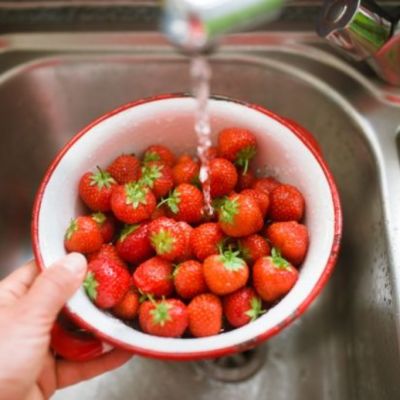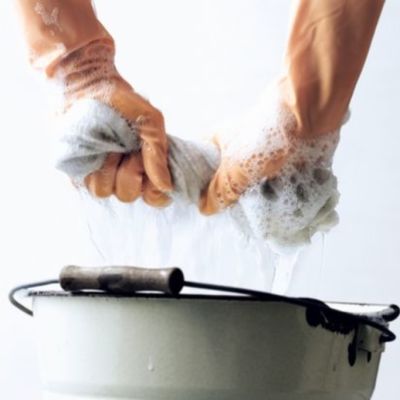My friend vacuums her letterbox: why some people have an obsession to clean

- Cleaning mistakes that make food taste worse
- What your cleaner wants you to know
- Things you only have to clean once a year
I loathe the monotony of housework and the intrusion into time when I could be doing, well, anything else. However, I do love the feeling of pride as I gaze at my sparkling benchtops and gleaming floors. Unfortunately that glow is short-lived as my teenagers traipse in grass and sand, use every pot and dish in the kitchen to make snacks and leave Hansel and Gretel trails of discarded shoes, books, wrappers and clothes throughout the house.
A well-ordered home is something I try to keep on top of, but watching my kids play sport or meeting friends for lunch will always take precedence. If I have to run out the door at a moment’s notice, I don’t worry that my house may look like someone has picked it up and shaken it.
Deanna, a close friend, is not so relaxed. “If someone came over and the dishes weren’t done and my bed wasn’t made it would stress me out,” she says. “I won’t leave the house unless it’s clean. I can’t leave it.”
Deanna wakes at six every morning and follows a rigid cleaning regime until eight, stopping midway to eat breakfast. Her routine never varies but each day she will add an extra job such as rearranging the pantry or bathroom cupboard. “I actually find cleaning very therapeutic,” Deanna says. “I don’t like seeing things out of place.”
Every couple of months she vacuums her letterbox and meter box because “they get dirty” and if a piece of rubbish lands on the floor she won’t pick it up and throw it in the bin, but will vacuum the entire room. It is not unusual for her to vacuum four times a day.
Deanna believes she has obsessive compulsive disorder (OCD) but has not sought a clinical diagnosis for fear of being proven right. “If my house is tidy and everything is organised, my head’s at peace,” she says.

Deanna wakes at six every morning and follows a rigid cleaning regime until eight. Photo: Goldmund
Psychologist, Tania Coats, says 95 per cent of our thoughts are “junk”. A random one about raw chicken might pop into someone’s head and be dismissed immediately, but in an OCD sufferer the meaning and response to that same thought may trigger a compulsion to clean out an entire fridge, just in case raw chicken contaminated other food.
Deanna understands her behaviour is extreme and on occasions resents the impact on her life. She rarely entertains as her inability to leave dirty dishes until guests have left has incurred hurtful, sarcastic comments, and she has to fight the urge to clean around people.
“Many clients with cleaning-type OCD find themselves quite isolated and withdrawn, fearing the consequences of allowing people into their homes,” Coats says. She adds feelings of inadequacy in childhood could be linked to a compulsion to clean as adults. “Whether it is to control the environment to achieve a sense of safety, or to demonstrate perfection so as to achieve approval and acceptance.”

Feelings of inadequacy in childhood may be linked to a compulsion to clean as adults. Photo: CasarsaGuru
An obsession with cleanliness may stem from Deanna’s childhood. She remembers a clean room being the one thing she could control – her bed perfectly flat and pillow propped at an exact height. Not prepared to blame anyone, Deanna concedes: “I’ve accepted that’s who I am. Everyone has an addiction and that’s just mine.”
Luckily for me, Deanna’s need for extreme cleaning doesn’t extend outside her house and she feels comfortable in my less than pristine home. But I have to admit, I sometimes wish she would feel compelled to pick up my vacuum, or mop, or cloth.
We recommend
States
Capital Cities
Capital Cities - Rentals
Popular Areas
Allhomes
More










